Major shortcomings in salary-setting appraisals
Lund University has applied salary-setting appraisals for Saco-S members since 2016. In April/May 2024, Saco-S at Lund University sent out a survey to investigate how members perceive the process of salary-setting appraisals according to RALS 2010-T.
The survey received a great response with over 1000 respondents and now the answers have been analysed. The different parts of the individual salary-setting process - staff appraisal, follow-up and and salary-setting appraisal - were addressed in the survey through multiple choice questions. Members then had the opportunity to provide free-text answers on how they think the salary is actually set and how they would like the process to work. We received around 500 free text responses. In 2022 and 2023, the salary review was carried out on time and according to the agreed process, which provided a good opportunity to hear members' views without being coloured by deviations from the agreed process.
Our local experience of applying the central agreement is extensive thanks to the size of the authority, our high level of organisation and the fact that we were early in the higher education sector to introduce salary-setting discussions.
Summary of the results
We conclude in the report that there are major shortcomings, but that the problems differ between the areas of negotiation of faculties, administration and Max IV. At the same time, the members' descriptions of the experience in the free text responses are strikingly similar and linked to the basic method described in the collective agreement RALS 2010-T rather than various process shortcomings. Salary-setting appraisals aim to create participation, motivation and individual salary but are described by members as a ‘one-sided take-it-or-leave-it offer’ from managers who do not have the time to motivate individual salary or the mandate to set individual salary for their employees. Many members feel alone in the process and at the mercy of the salary-setting manager. They also wonder what the union is doing for its members and value getting the right salary rather than negotiating their salary. The sense of theatre or acting comes from the fact that it is not actually a negotiation as the salary review is just a meeting where you are told your new salary. The free text responses are characterised by frustration and resignation about the whole process.
As far as staff appraisals are concerned, we can briefly note that the vast majority state that they have had such a meeting.
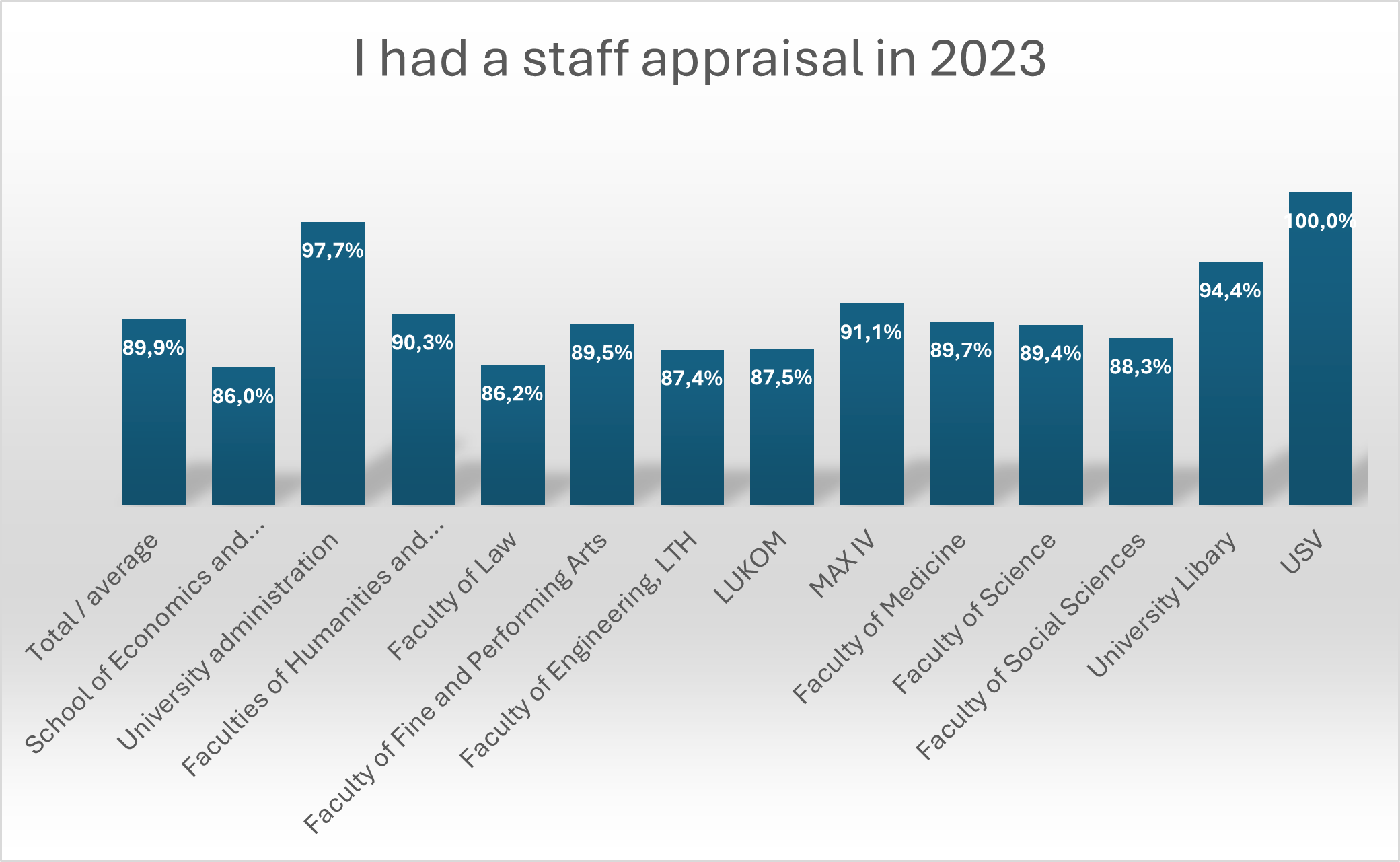
The staff appraisal is the first step for the member towards the new salary. Step 2 is follow-up, and this is where the process shortcomings start to affect members. When we summarise the number of people who say they have not had any follow-up, we get the following results.
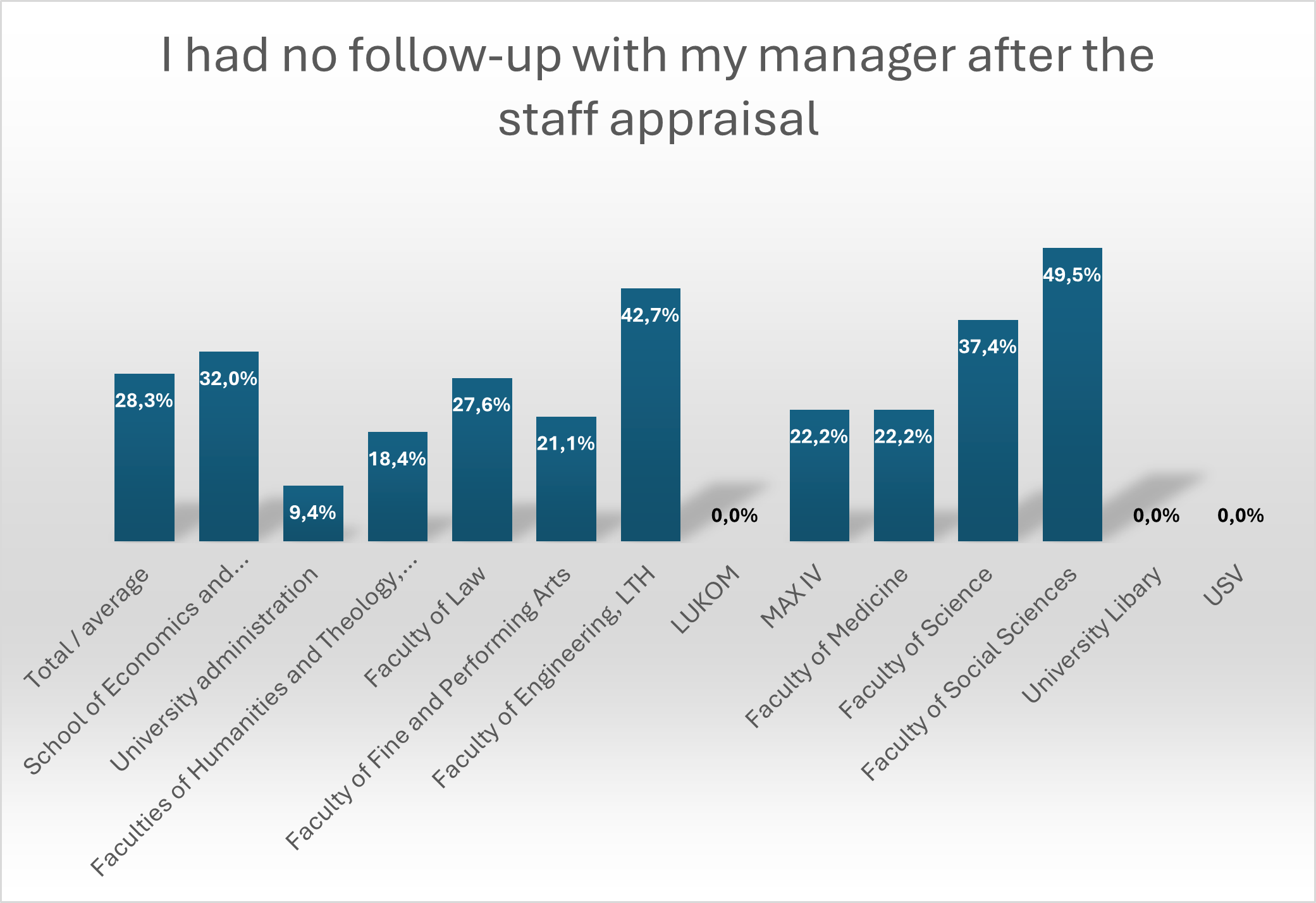
Thus, there are areas of negotiation where almost 50% of members report that they have not had follow-up meetings or continuous follow-up as step 2 in the salary-setting process. In other areas of negotiation, it seems that everyone has had some kind of follow-up. To clarify a pattern in the data, we have compared the results for ‘Faculties’ with ‘Administration’. Note that Max IV and USV are thus not included in the comparisons below.
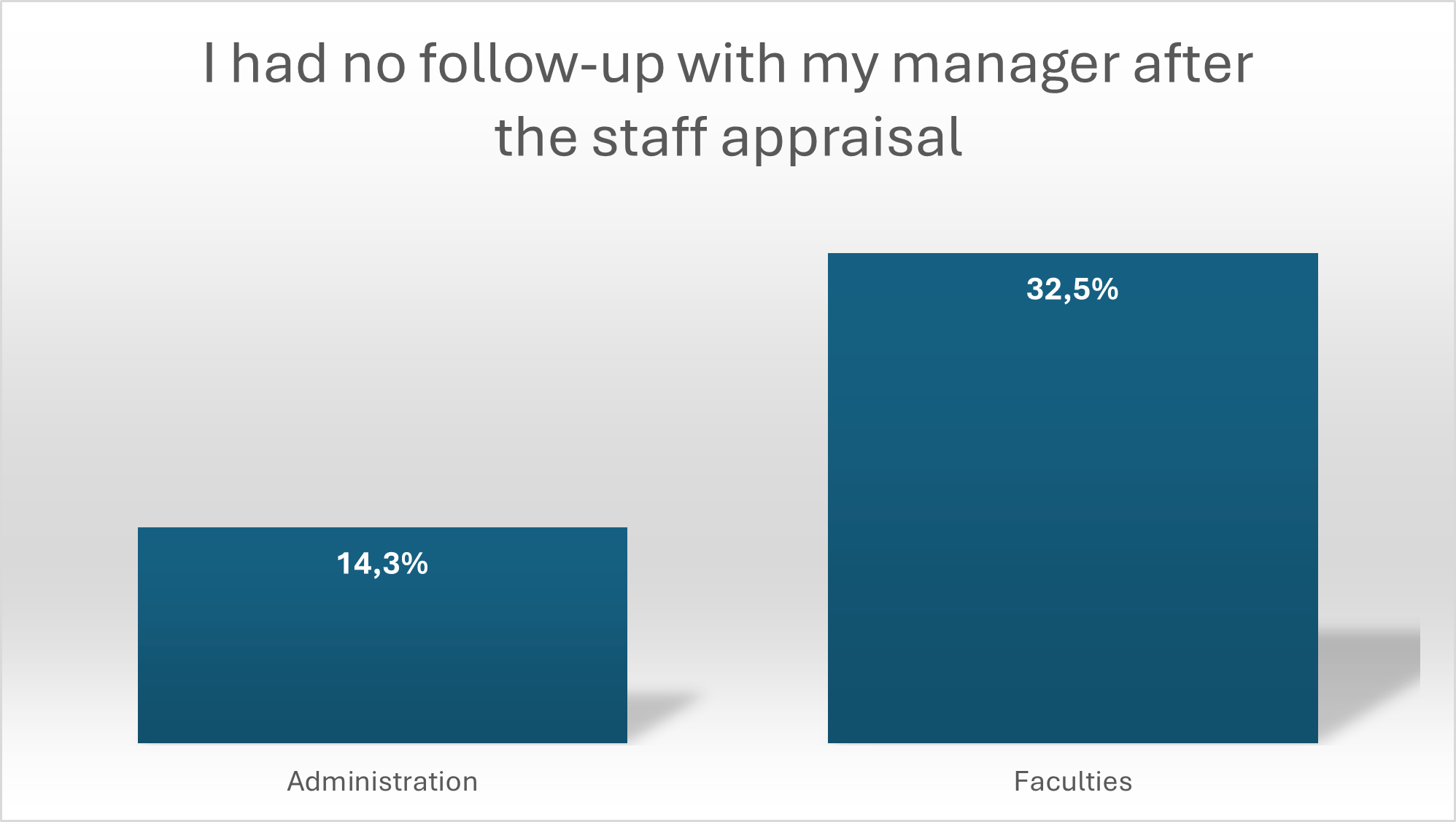
The comparison aims to highlight the most prominent pattern in the data. Salary-setting appraisals work relatively well in the ‘Administration’ but show major shortcomings in the ‘Faculties’. Note that there are a lot of technical and administrative staff also at the faculties.
The final step in the individual salary-setting process is the salary-setting appraisal.
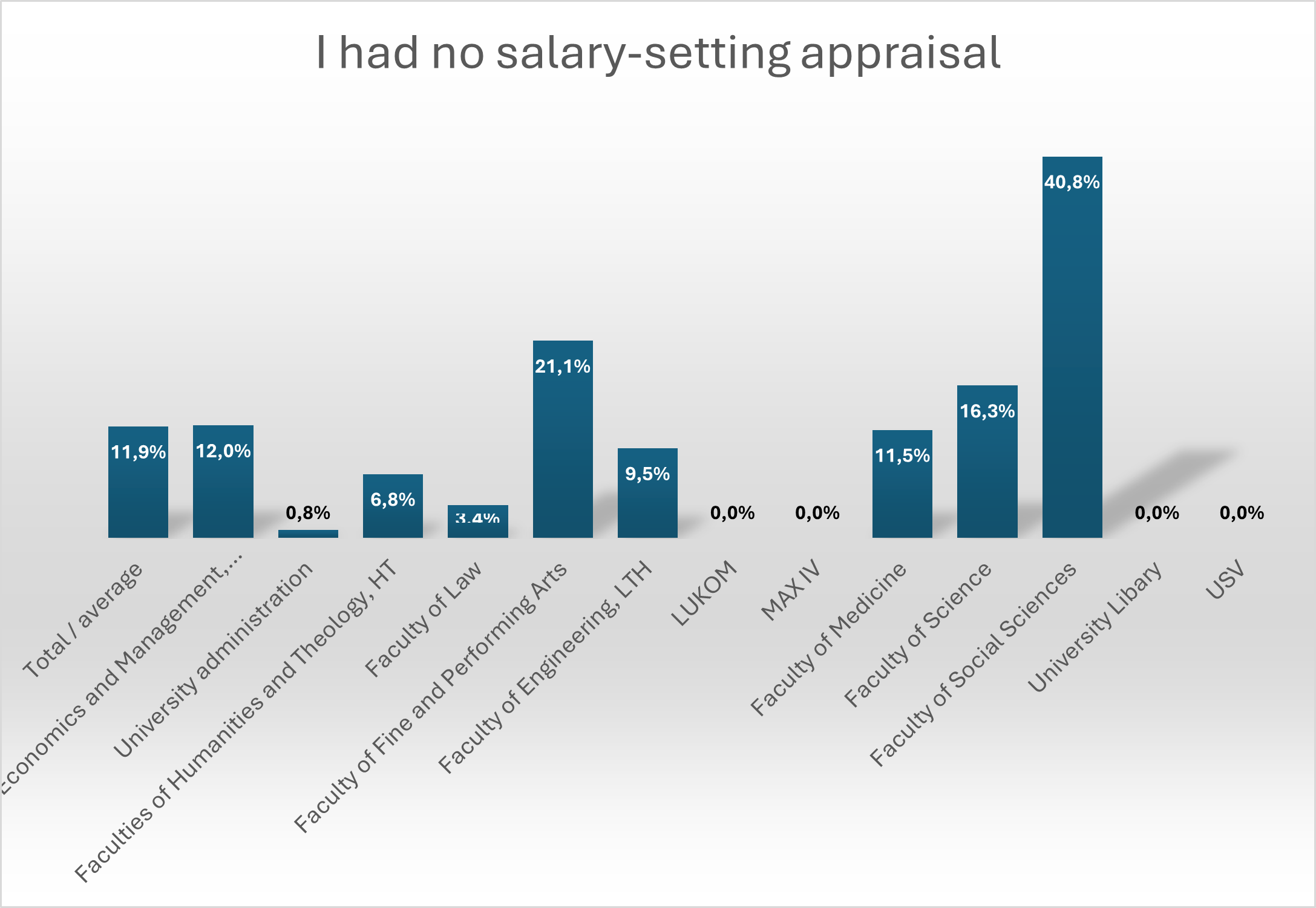
According to the members who responded to the survey, some areas of negotiation show greater problems in applying the agreement. Again, it is the differences between the ‘Administration’ and the ‘Faculties’ that are most striking. Note that Max IV and USV are therefore not included in the comparisons when we compare ‘Faculties’ with ‘Administration’.
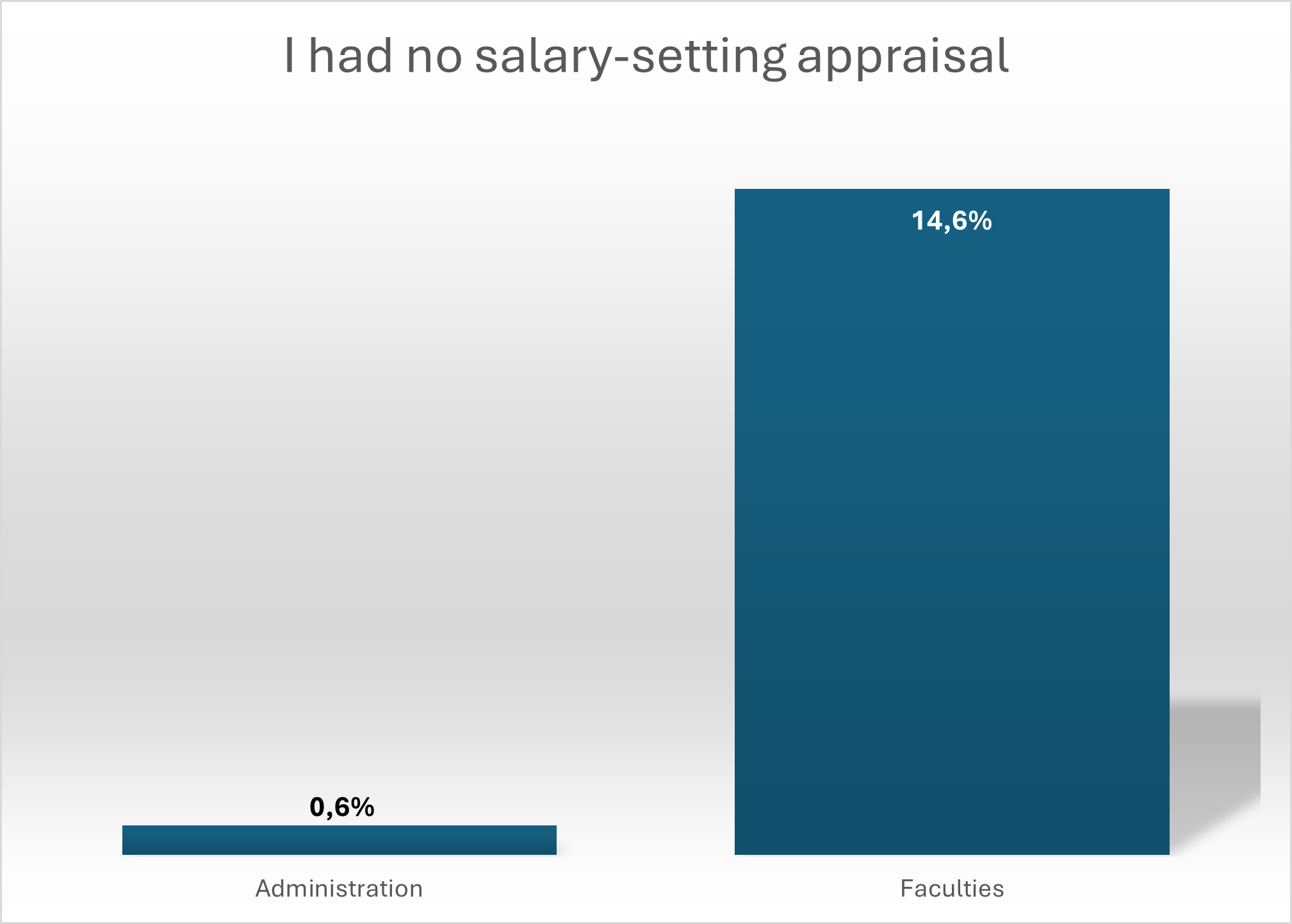
When Saco-S voted at central level to introduce salary-setting appraisals in the higher education sector, SULF, the Swedish Teachers’ Union and the Swedish Medical Association entered a reservation against the decision. In its 2018 report ‘’Salary-setting appraisal as a salary formation model in the higher education sector - evaluation ‘’, SULF explains its reasons for the reservation. The main reason was “that the salary formation model would cause difficulties in the higher education sector because the model was not adapted to the higher education organisation” and this still characterises the application of the central agreement. Even though the shortcomings in application are relatively diverse in the different parts of the organisation, the experience of the members is strikingly similar. The free text responses indicate that members feel at the mercy of a salary-setting manager who does not have the mandate, time or knowledge to set an individual salary. They also feel alone in the process, and many ask why the union does not help its members. As the salary-setting appraisal is not a negotiation, it is perceived as pointless and therefore time is wasted at every stage of the process. Almost no one who answers in free text writes anything positive about the process. In the upcoming report, we will present more patterns in the questions about the process and analyse the free text responses in more detail. We will also be sending out a survey to salary-setting managers to ask how the employer's representative perceives the process and how they would like it to be if given the choice. We hope that all those involved in the faculties will discuss how salary-setting can better serve the interests of the organisation and its members.